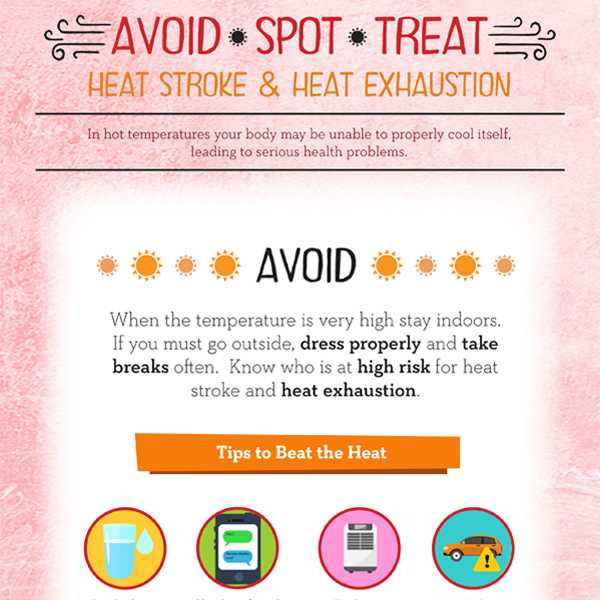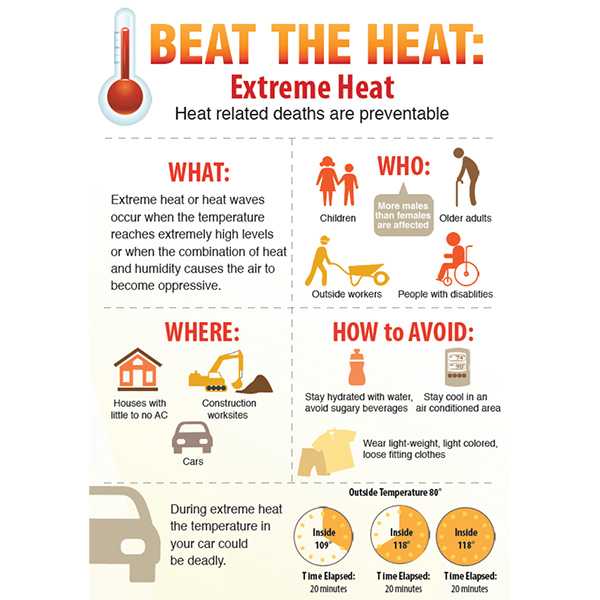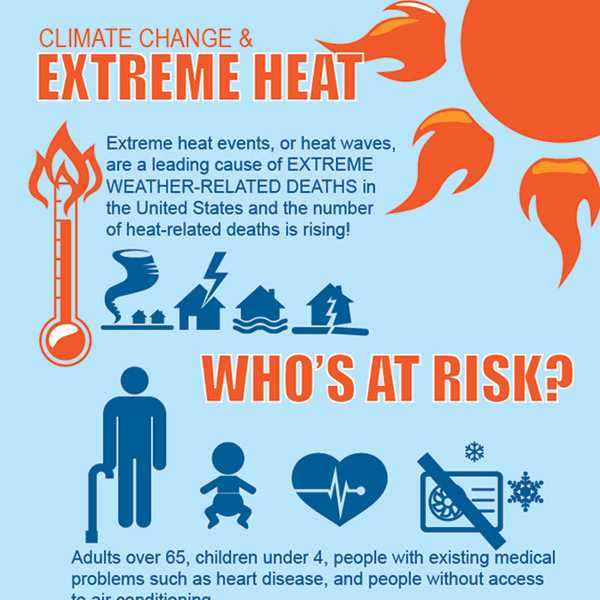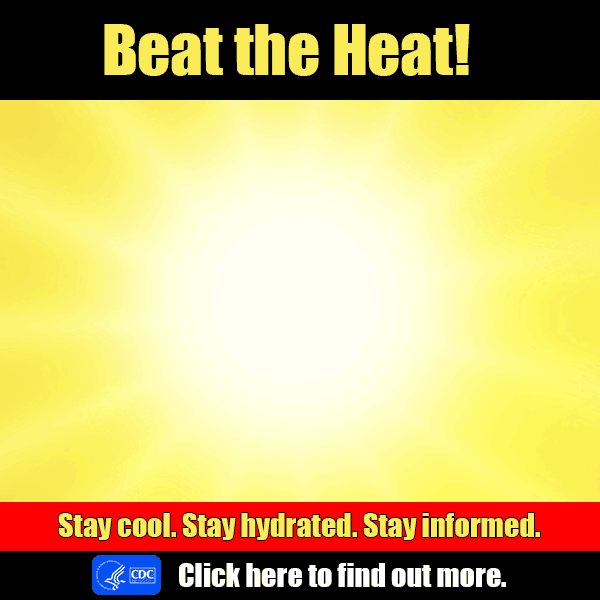Protect Yourself From the Dangers of Extreme Heat
The effects of rising temperatures and extreme heat result in numerous illnesses and deaths each year.
For many people, warm weather is a time for fun-filled outdoor activities. However, hot weather and outdoor activities don’t always mix well, especially during periods of extreme heat--- times when temperatures are substantially hotter and/or more humid than average for a location and date.
Extreme heat can cause people to suffer from heat-related illness, and even death. People suffer heat-related illness when their bodies are unable to properly cool themselves. Older adults, young children, and people with chronic medical conditions are at high risk for heat-related illness and death. From 1999 to 2010, a total of 7,415 people died of heat-related deaths in the United States, an average of about 618 deaths a year.
Warmer temperatures can mean higher ozone levels. Pay attention to the U.S. Environmental Protection Agency’s Air Quality Index when planning outdoor summer activities, especially if you have asthma or another lung disease.
Track extreme heat in your area. The CDC’s Tracking Network provides information you can use to protect yourself from extreme heat. The network contains U.S. data on heat-related deaths and illnesses from 27 states. You can use it to see if heat-related deaths and illnesses are rising or declining in your state or county.
When temperatures are extremely high, take steps to protect yourself and your loved ones:
- Stay cool, stay hydrated, and stay informed.
- If you do not have air conditioning, visit a shopping mall or public library for a few hours or call your local health department to find any heat-relief shelters in your area.
- Drink plenty of fluids (nonalcoholic), regardless of your activity level.
- Wear lightweight, light-colored, loose-fitting clothing.
- NEVER leave anyone in a closed, parked vehicle, including pets.
- Visit older adults or others at risk at least twice a day and closely watch them for signs of heat exhaustion or heat stroke.
CDC urges everyone to learn about danger of extreme heat, know the potential risks to health, and discover ways stay healthy and safe. Learn more about the effects of extreme heat.
Contact Information
NCEH/ATSDR Office of Communication
(770) 488-0700
envhealthmedia@cdc.gov
Spokesperson
Amy Wolkin, DrPH

"Heat-related illnesses and deaths are preventable. The best thing you can do in a heat wave is find air conditioning. Extreme heat can be especially dangerous for young children and older adults. Never leave a person or pet in a car during hot weather, and make sure to check in on older adults, especially if they live alone."
Amy Wolkin, DrPH - Branch Chief, Health Studies Branch, National Center for Environmental Health
Related Links
Before:
Extreme #heat can be a serious threat to your health. Learn the warning signs: http://1.usa.gov/1MNeJKz
Temperatures are rising! Share @CDCgov infographic on how to beat the #heat. http://1.usa.gov/1WhpoPi
During:
Experiencing extreme #heat in your area? Drink more water than usual & don’t wait until you’re thirsty: http://1.usa.gov/1Sh1kus
Extreme #heat in the forecast? Check on elderly neighbors who are at higher risk for heat-related illness: http://1.usa.gov/1Sh1kus
Did you know that sunburn can slow the skin's ability to release excess #heat? More hot tips: http://1.usa.gov/1WhpoPi
If your body can't cool down properly it can cause #heat stress. Learn the warning signs: http://1.usa.gov/1MNeJKz
#Heatwave Tip: Never leave #children or #pets alone in closed vehicles. http://1.usa.gov/1WKBXmM
Working outside? Drink plenty of non-alcoholic fluid and take breaks often! #heatwave http://1.usa.gov/1Sh1O3L
Experiencing a #heatwave? Wear lightweight, light-colored, loose-fitting clothing http://1.usa.gov/1Sh1O3L
Be a good neighbor! Check on elderly neighbors who are at higher risk for heat-related illness. http://1.usa.gov/1WhqTgd
Extreme heat can make you seriously ill. Know the signs & how to prevent illness. http://1.usa.gov/1MNeJKz
Heat cramps, heat exhaustion & heat stroke - know the symptoms & what to do when they occur: http://1.usa.gov/1MNeJKz
Sunburn can slow the skin's ability to release exccess #heat. Avoid sun exposure and remember sunscreen! http://1.usa.gov/1Sh1O3L
Never leave kids or pets alone in vehicles- always check the backseat! http://1.usa.gov/1WKBXmM
Muscle cramping, heavy sweating, weakness & dizziness are symptoms of heat exhaustion. Know what to do: http://1.usa.gov/1Sh1O3L
People age 65+ are less likely to sense & respond to changes in temperature. Check on your loved ones: http://1.usa.gov/1WhqTgd
Never leave children or pets alone in vehicles. Car temperatures can quickly turn deadly. http://1.usa.gov/1WKBXmM
Sunburned skin releases excess heat slower, making it harder to cool off. Use sunscreen & avoid the burn. http://1.usa.gov/1Sh1O3L
- Page last reviewed: July 20, 2016
- Page last updated: July 20, 2016
- Content source:


 ShareCompartir
ShareCompartir





